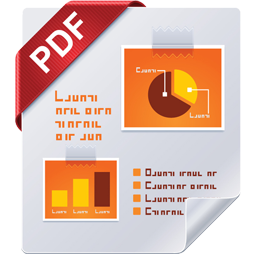Most Commented
Cinema 4D Complete : Vol. 4 All About Simulations





Description material

Cinema 4D Complete : Vol. 4 All About Simulations
Published 2/2024
MP4 | Video: h264, 1920x1080 | Audio: AAC, 44.1 KHz
Language: English | Size: 7.30 GB | Duration: 8h 37m
Simulation
What you'll learn
All about Simulations in Cinema 4D
Simulate clothes, balloons, gummy balls, pillows, jelly..
Fast simulations with Cinema 4D's new simulation system
Make different objects interact with each other
Requirements
Basic understanding of 3D inside Cinema 4D
Description
Cinema 4D's new simulation engine makes it possible to create extraordinary realistic or abstract animations!In this new module of the complete Cinema 4D training course, you'll find out all about the new rigid body, soft body, fabric and rope simulation tools!Topple dominoes, demolish walls, create hypnotic fabric animations, transform lettering into balloons or old pleated leather, animate floating flags and tear them apart - it's all possible now with Cinema 4D.In clearly organized chapters, we'll study all the techniques needed to master the various simulations.This Cinema 4D training course on physical simulations covers the following topics:Rigid bodies are the properties that enable objects to collide with each other and create complex dynamic sequences automatically. The animation possibilities are virtually infinite, and effectively complement traditional animation using keyframes or Mograph. You can even combine the three at the same time!Drape, fly and twist clothes in extraordinary abstract animations! Or use them to dress your characters with stunning realism.You will model a dress entirely on a dancing cartoon character. The fabric follows the character's movements naturally and dynamically, for maximum realism. The entire workflow is covered, from dress modeling and finishing to testing and caching for easy playback.Soft bodies simulate anything plastic, rubbery or easily deformed. It makes for very smooth, fun animations and can be easily combined with rigid bodies.This module is the ideal complement to the one devoted to Mograph, as it takes up certain elements and completes them.As usual, all the videos are clearly named and organized so you can quickly access the one that interests you. Mini-projects complete the videos to help you put the skills you've learned into practice.Please note that this tutorial is intended for Cinema 4D version 2024.2 and higher, which uses the new unified simulation system.All source files are provided. I'll be happy to answer any questions you may have !Enjoy the tutorial!
Overview
Section 1: Rigid Bodies - The basics
Lecture 1 Download Exercice Files
Lecture 2 Basics of Rigid Bodies
Lecture 3 Using the startup scene
Lecture 4 How simulations work
Lecture 5 Scale, gravity and mass
Lecture 6 Collision shape
Lecture 7 Collision shape : Cube and Sphere
Lecture 8 Compound shape : more complex objects
Lecture 9 Thickness
Lecture 10 Friction and bounce
Lecture 11 Stickiness
Lecture 12 Mass
Lecture 13 Rotational mass
Lecture 14 The Simulation Scene workflow
Section 2: Rigid Bodies - Animating
Lecture 15 Initial velocity
Lecture 16 Initial state
Lecture 17 Trigger on colision
Lecture 18 Tigger on velocity peak : basics
Lecture 19 Make a tower crumble with Velocity peak
Lecture 20 Destroy a wall with Velocity peak
Lecture 21 Settle dynamic objects after a simulation
Lecture 22 Controling the deactivation of dynamics
Section 3: Taking control of Rigid Bodies
Lecture 23 Controling the animation with Follow Position
Lecture 24 Following a spline
Lecture 25 Spicing the simulation with Forces
Lecture 26 Enhancing a Mocap with Dynamics
Lecture 27 Creating an Abstract Equilibrium
Lecture 28 Topple a domino line
Lecture 29 Tumbling a pyramid of domino
Section 4: Cloth - The basics
Lecture 30 The basics of Cloth
Lecture 31 The importance of topology and density
Lecture 32 Main parameters
Lecture 33 Using Vertex Maps
Lecture 34 Creating a flag : fixing points
Lecture 35 Creating a flag : using the Cloth Belt
Lecture 36 Animating curtains with the Cloth Belt
Lecture 37 Creating a beautiful animation with Forces and Mass
Section 5: Tearing Cloth
Lecture 38 How to tear Cloth
Lecture 39 Using Fields to drive tearing
Lecture 40 Growing a tear
Lecture 41 Enhancing the tearing using triangles
Lecture 42 Smoothing the tearing
Section 6: Soft Body and Balloon
Lecture 43 Basics of Balloon
Lecture 44 Constrain a balloon text
Lecture 45 Basics of Soft Bodies
Lecture 46 Understanding the poles
Lecture 47 Orienting the poles
Lecture 48 Plastic deformations
Lecture 49 Deforming a rigid text
Lecture 50 Turning any object to soft body (proxy workflow)
Section 7: Creating and animating garments
Lecture 52 Create an animate pillows
Lecture 51 Create and animate pillows
Lecture 52 Create a bottle packaging
Lecture 53 Create a bottle packaging
Lecture 53 Dressing a character with clothes
Lecture 54 Refining the cloth animation
Lecture 55 Changing the dress, finalizing the animation
Section 8: Abstract animation with Cloth
Lecture 56 Mix Animation : Creating a leathery text
Lecture 57 Mix Animation : Adding folds
Lecture 58 Mix Animation : Enhancing a dancing character
Lecture 59 Mix Animation : Using forces to animate a deflating text
Lecture 60 Create a render for the deflating text
Lecture 61 Creating a Wacky Noodle Man
Lecture 62 Adding hair to the Wacky Noodle Man
Section 9: Ropes
Lecture 63 Basics of ropes
Lecture 64 Using Vertex Maps with Ropes
Lecture 65 Connecting ropes with others objects
Lecture 66 Twisting a rope
Lecture 67 Let's make it a real rope !
Lecture 68 Create and animate a spiderweb
Lecture 69 Tearing the spiderweb
3D Artists,Motion Designer
What you'll learn
All about Simulations in Cinema 4D
Simulate clothes, balloons, gummy balls, pillows, jelly..
Fast simulations with Cinema 4D's new simulation system
Make different objects interact with each other
Requirements
Basic understanding of 3D inside Cinema 4D
Description
Cinema 4D's new simulation engine makes it possible to create extraordinary realistic or abstract animations!In this new module of the complete Cinema 4D training course, you'll find out all about the new rigid body, soft body, fabric and rope simulation tools!Topple dominoes, demolish walls, create hypnotic fabric animations, transform lettering into balloons or old pleated leather, animate floating flags and tear them apart - it's all possible now with Cinema 4D.In clearly organized chapters, we'll study all the techniques needed to master the various simulations.This Cinema 4D training course on physical simulations covers the following topics:Rigid bodies are the properties that enable objects to collide with each other and create complex dynamic sequences automatically. The animation possibilities are virtually infinite, and effectively complement traditional animation using keyframes or Mograph. You can even combine the three at the same time!Drape, fly and twist clothes in extraordinary abstract animations! Or use them to dress your characters with stunning realism.You will model a dress entirely on a dancing cartoon character. The fabric follows the character's movements naturally and dynamically, for maximum realism. The entire workflow is covered, from dress modeling and finishing to testing and caching for easy playback.Soft bodies simulate anything plastic, rubbery or easily deformed. It makes for very smooth, fun animations and can be easily combined with rigid bodies.This module is the ideal complement to the one devoted to Mograph, as it takes up certain elements and completes them.As usual, all the videos are clearly named and organized so you can quickly access the one that interests you. Mini-projects complete the videos to help you put the skills you've learned into practice.Please note that this tutorial is intended for Cinema 4D version 2024.2 and higher, which uses the new unified simulation system.All source files are provided. I'll be happy to answer any questions you may have !Enjoy the tutorial!
Overview
Section 1: Rigid Bodies - The basics
Lecture 1 Download Exercice Files
Lecture 2 Basics of Rigid Bodies
Lecture 3 Using the startup scene
Lecture 4 How simulations work
Lecture 5 Scale, gravity and mass
Lecture 6 Collision shape
Lecture 7 Collision shape : Cube and Sphere
Lecture 8 Compound shape : more complex objects
Lecture 9 Thickness
Lecture 10 Friction and bounce
Lecture 11 Stickiness
Lecture 12 Mass
Lecture 13 Rotational mass
Lecture 14 The Simulation Scene workflow
Section 2: Rigid Bodies - Animating
Lecture 15 Initial velocity
Lecture 16 Initial state
Lecture 17 Trigger on colision
Lecture 18 Tigger on velocity peak : basics
Lecture 19 Make a tower crumble with Velocity peak
Lecture 20 Destroy a wall with Velocity peak
Lecture 21 Settle dynamic objects after a simulation
Lecture 22 Controling the deactivation of dynamics
Section 3: Taking control of Rigid Bodies
Lecture 23 Controling the animation with Follow Position
Lecture 24 Following a spline
Lecture 25 Spicing the simulation with Forces
Lecture 26 Enhancing a Mocap with Dynamics
Lecture 27 Creating an Abstract Equilibrium
Lecture 28 Topple a domino line
Lecture 29 Tumbling a pyramid of domino
Section 4: Cloth - The basics
Lecture 30 The basics of Cloth
Lecture 31 The importance of topology and density
Lecture 32 Main parameters
Lecture 33 Using Vertex Maps
Lecture 34 Creating a flag : fixing points
Lecture 35 Creating a flag : using the Cloth Belt
Lecture 36 Animating curtains with the Cloth Belt
Lecture 37 Creating a beautiful animation with Forces and Mass
Section 5: Tearing Cloth
Lecture 38 How to tear Cloth
Lecture 39 Using Fields to drive tearing
Lecture 40 Growing a tear
Lecture 41 Enhancing the tearing using triangles
Lecture 42 Smoothing the tearing
Section 6: Soft Body and Balloon
Lecture 43 Basics of Balloon
Lecture 44 Constrain a balloon text
Lecture 45 Basics of Soft Bodies
Lecture 46 Understanding the poles
Lecture 47 Orienting the poles
Lecture 48 Plastic deformations
Lecture 49 Deforming a rigid text
Lecture 50 Turning any object to soft body (proxy workflow)
Section 7: Creating and animating garments
Lecture 52 Create an animate pillows
Lecture 51 Create and animate pillows
Lecture 52 Create a bottle packaging
Lecture 53 Create a bottle packaging
Lecture 53 Dressing a character with clothes
Lecture 54 Refining the cloth animation
Lecture 55 Changing the dress, finalizing the animation
Section 8: Abstract animation with Cloth
Lecture 56 Mix Animation : Creating a leathery text
Lecture 57 Mix Animation : Adding folds
Lecture 58 Mix Animation : Enhancing a dancing character
Lecture 59 Mix Animation : Using forces to animate a deflating text
Lecture 60 Create a render for the deflating text
Lecture 61 Creating a Wacky Noodle Man
Lecture 62 Adding hair to the Wacky Noodle Man
Section 9: Ropes
Lecture 63 Basics of ropes
Lecture 64 Using Vertex Maps with Ropes
Lecture 65 Connecting ropes with others objects
Lecture 66 Twisting a rope
Lecture 67 Let's make it a real rope !
Lecture 68 Create and animate a spiderweb
Lecture 69 Tearing the spiderweb
3D Artists,Motion Designer
Warning! You are not allowed to view this text.
Warning! You are not allowed to view this text.
Warning! You are not allowed to view this text.

Join to our telegram Group
Information
Users of Guests are not allowed to comment this publication.
Users of Guests are not allowed to comment this publication.
Choose Site Language
Recommended news
Commented


![eM Client Pro 9.2.1735 Multilingual [Updated]](https://pikky.net/medium/wXgc.png)






![Movavi Video Editor 24.0.2.0 Multilingual [ Updated]](https://pikky.net/medium/qhrc.png)

